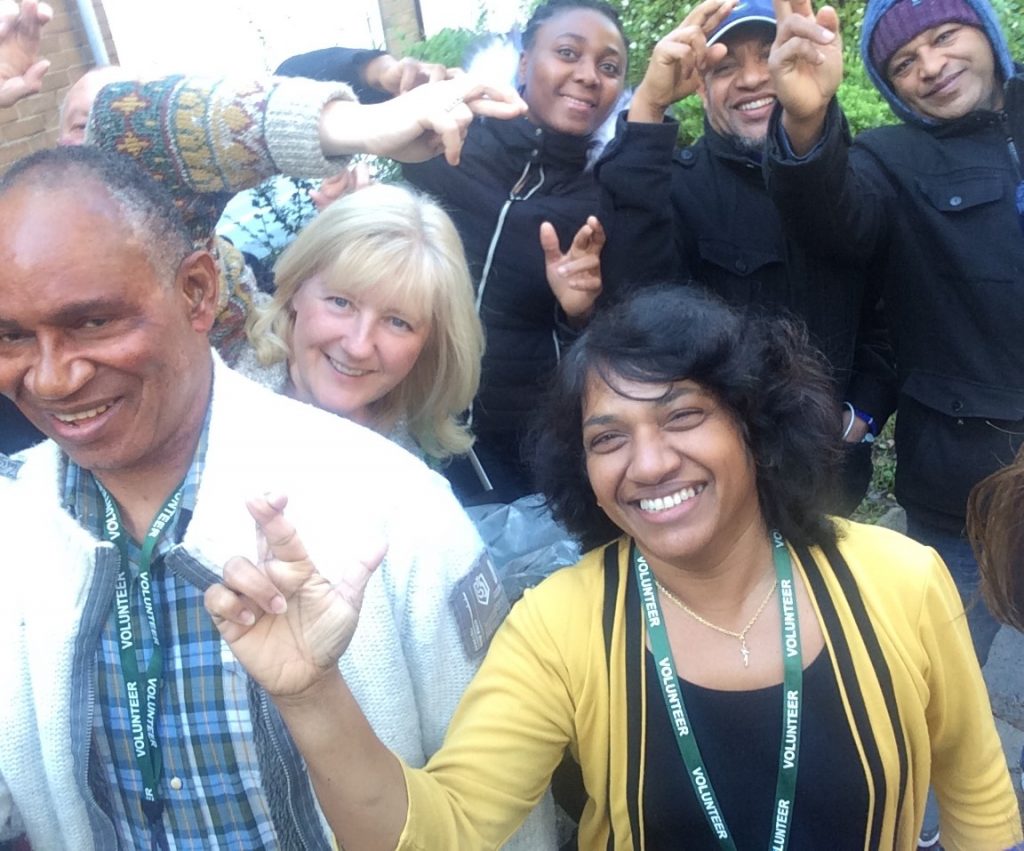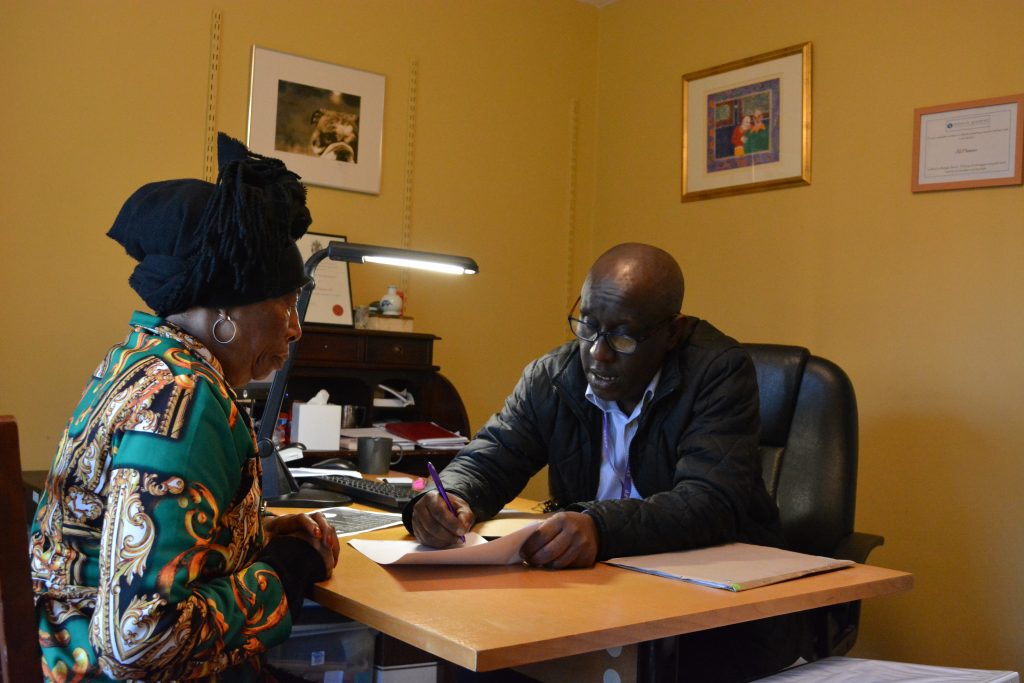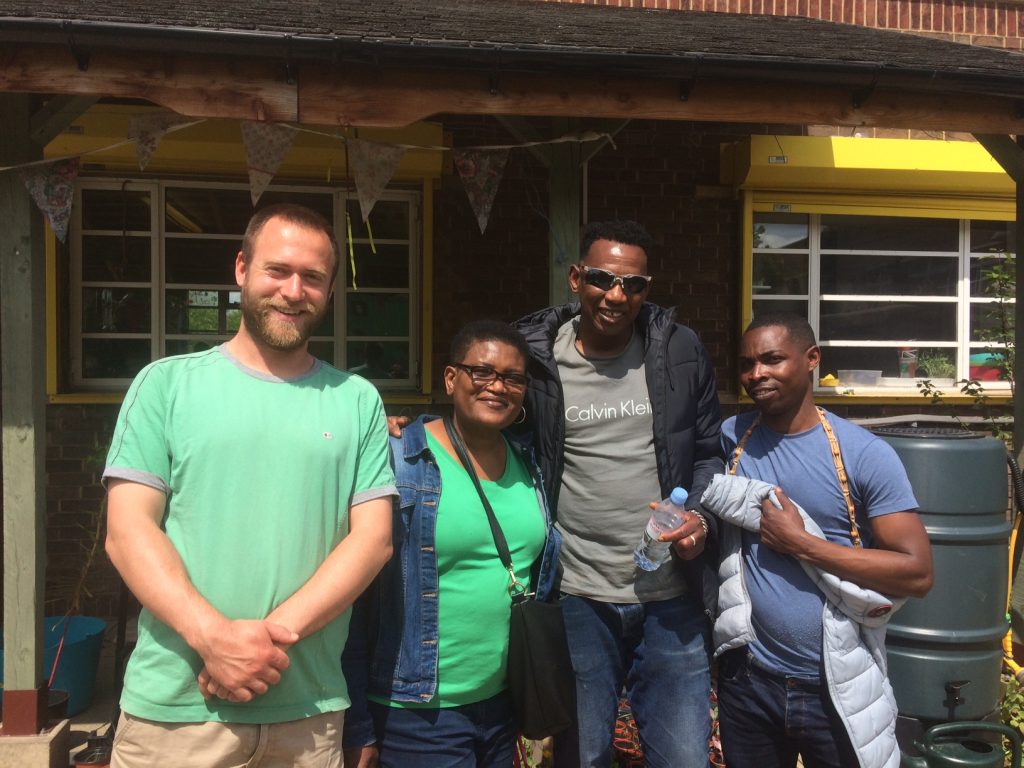Silvia Pasquetti and Cathrine Degnen are Sociology staff members at Newcastle University. Here they write about the experiences of asylum seekers in Newcastle, and the role the West End Refugee Service has played in supporting them over the past two decades. (In addition to writing this blog, Silvia and Cate took part in a webinar with WERS to mark its 20th anniversary. This can be viewed here.)
Sauda is a refugee from Burundi who has lived in Newcastle since 2004. Like many other asylum seekers who were “dispersed” in Newcastle in the early 2000s, Sauda’s early experiences of and in the city, were troubling and disorienting. Newcastle had become an asylum-dispersal city in the late 1990s as a result of the Home Office policy to “disperse” asylum seekers outside the London area. Yet, the globally displaced people arriving in Newcastle had, at that time, little institutional or social support. They struggled to find people who spoke their languages or understood their experiences of displacement. They felt isolated and uncertain about the environment around them.
For example, Sauda was initially “dispersed to Angel Heights,” a now-closed accommodation for single refugee women on Westgate Road opposite to the main hospital. Before becoming an asylum centre for refugee women mostly from sub-Saharan Africa, Angel Heights hosted up to a hundred single Afghani men. Before that, it was a nurses’ hostel. In the chapter that she dedicates to “the politics of dispersal” in Newcastle in her book Human Cargo (2006), Caroline Moorehead describes Angel Heights as “both decent and dreadful; both humane and cruel.” What impressed Moorehead the most was the silence: “Angel Heights is a waiting room, a building in which nothing happens. Few of its inhabitants speak English, and few can speak to each other…Forbidden to work, they [the refugee women] have literally nothing to do; nothing, that is, except to worry…They sit alone in large rooms full of cobalt-blue chairs in rows; they stand in the corridors; they queue by the single payphone. Angel Heights is quiet; when the women speak, they speak in whispers” (p. 147).

Despite the isolation wrapped around her, it is at Angel Heights that Sauda heard from another resident about the existence of the West End Refugee Service (WERS). This informal conversation was the beginning of a more positive experience of refuge for Sauda. For that is to say, about six years after Newcastle became an asylum-dispersal city, Sauda had tapped into a growing network of support in which the local residents who eventually founded WERS in 1999 were key actors. These residents were not particularly expert in refugee law or human rights issues. Yet, they took note of all the changes and challenges that the arrival of globally displaced people brings to a city. In a way, even when the language of sanctuary or protection was not explicitly used, these local Newcastle residents started to work to transform an asylum-dispersal site created through top-down policies that are often (willingly or neglectfully) convoluted, fragmented, and contradictory into a city of sanctuary where refugees can rebuild new lives, and local residents can also grow in knowledge of and involvement in global issues of injustice.
This network was and still is striving to produce, solidify, and expand an environment of possibilities and growth for newly arrived refugees in the city. Each achievement brings a new challenge. Historical events such as the global financial crisis, Brexit, and, more recently the covid-19 outbreak, risk setting the clock backward endangering some of the achievements reached gradually and with a lot of hard work against racist and anti-migrant practices and discourses. Yet, the case of WERS demonstrates that positive change can and often is effected from below in everyday life through everyday communication. Sauda’s experience of WERS in the last fifteen years confirms the importance of such a network of support. It traces the way forward for newly arrived refugees who, unlike for her 15 years ago, often find a richer urban environment in both social and institutional opportunities. This trajectory emerges from how Sauda describes her encounter with WERS, an encounter that for her stood in stark contrast with her experience of dread and isolation at Angel Heights:
I went [to WERS] and got some clothes from their store. WERS made me feel so welcome and I really liked what they were doing. I came back and asked to volunteer. I have now volunteered on and off for WERS for 14 years which I still really enjoy doing. My experience of being in the UK would have been so very difficult without WERS. I feel I had the whole team by my side fighting with me to get my leave to stay in the UK. WERS has provided counselling, a weekend break at a Friary with David the counsellor and Helen from WERS, where I was able to relax. I still have very fond memories of the experience, I will never forget it! WERS more recently referred me to Wise Steps and this has aided me to develop my skills and become more confident in my abilities!

Over the past year, we have been working with WERS to tell more of this complex and still evolving story of its role and presence in the community here in Newcastle. We have been listening to and learning from the voices and experiences of the people who make WERS what it is – founding members, volunteers, support groups, refugees turned into volunteers, and members of the broader local community – who first embarked in a transformative journey for themselves and the city where they lived. Our reflections in this blog post draw on our research interviews conducted this year as part of this work, and from 20 biographical stories of WERS clients that were assembled to commemorate the past 20 years of the service. Called “20 years, 20 stories”, these personal accounts come from refugees and asylum seekers. They are their own reflections on their experiences with and at WERS. These individuals have arrived in Newcastle from Zimbabwe, Algeria, Eritrea, Iran, Burundi, Nigeria, Israel, India, Sierra Leone, the Congo, Iraq, Iran, Cameroon and Nigeria. They are women and men recounting their own stories of the refugee and asylum seeking process in contemporary Britain, and specifically in the northeast of England.
This permits us to research and tell the story of WERS from both historical and contemporary perspectives, through memories of the past and activities of the present. Both these personal narratives and the interviews with WERS stakeholders, staff, and founding members make clear the deep and pernicious challenges that people seeking refuge and asylum face in Britain. The system is cold, it is harsh, and it is often an impenetrable, faceless bureaucracy. There is a designed intentionality in this experience, the government’s so-called “hostile environment”, and it does damage to one’s humanity.
In marked contrast, WERS is described time and time again by the people who come to it as offering a haven, as feeling like home. This is attributed in part to key things that WERS helps with (such as finding housing, finding a solicitor, registering with a GP, attending hospital appointments, understanding letters and paperwork, and making support payments), and the supplies it can provide (including clothing, bedding, toiletries, food parcels, and items to furnish one’s home). This assistance helps individuals who attend WERS, but also evident in the testimonies are the positive ways in which this impact ripples out into families as children, parents and siblings also benefit from the support and advice delivered by WERS.

But whilst these forms of assistance help generate a sense of home, it is also the connections of reliability and trust that emerge from the testimonies: “WERS has been with me all the way through good times and bad and never gave up on me. WERS is not just a place to get things.” This sense of connection that WERS creates is present in Sauda’s words above, and attributed by many of the “20 years, 20 lives” participants to the humanising atmosphere that is built at WERS. People use “safe”, “trust”, “happy”, and “it takes stress away” as words to describe how the space at WERS makes them feel, as well as these words to describe it:
“Being a part of WERS helps you to feel integrated and part of the society you are living in, not just the asylum process.”
“Ali and Helen’s faces, it makes me feel a part of something and not just an asylum seeker. Familiarity is rare when claiming asylum, there is so much that is unknown.”
“Coming to WERS has helped me to feel better about myself. Being amongst people, being able to talk and feel relaxed has helped a lot. Just being able to sit and watch people helping each other makes me feel happy, less isolated and more a part of life.”
“WERS has helped me to remain responsible, keep my dignity and independence!”
“I am able to dress in smart suits from the store when I attend church or group meetings. I don’t have to beg and ask others for bus fare to Middlesbrough. Without WERS I would have lost these things which are so important to me.”
“Thank you for WERS you have given me my life back!”
Forced displacement ruptures the connections that knit us into place. Isolation, the unknowns of the asylum process and the loss of control over everyday circumstances can be profoundly dehumanising. These challenges can and do feel insurmountable and unyielding at times. But what we have learned from the memories of the recent past here in Newcastle and the activities of the present is how WERS mobilises its energies into a focus on emotional wellbeing, and dignity, alongside practical assistance. Both are key elements that help people like Sauda rebuild their lives by opening a possibility of sanctuary, and a possibility of becoming knit into place once again.
